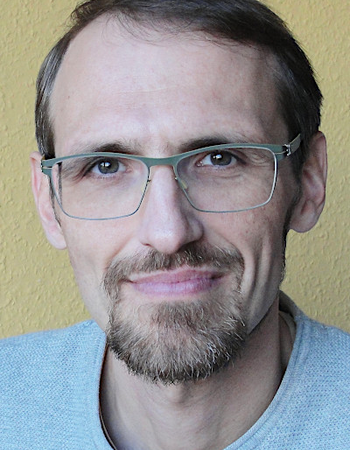Concepts and Conflicts of Ownership in Privatization: Communal Self-Government and Communal Property in Eastern Europe since 1990

Outline
In this funding phase, research on Poland will continue using newly accessible archival material and will be analytically elevated through a comparative perspective with Ukraine. In Poland, in addition to three case studies—Gdańsk, Warsaw-Wola, and Starachowice—the project will focus on archival records from the Ministry for the Transformation of Property, which are now accessible for the first time. These records are expected to provide deeper insights into the interplay between political privatisation strategies and local self-government, offering a valuable basis for national and local-level comparisons.
A key aspect of the comparative analysis is the study of property conflicts in post-Soviet Ukraine. Unlike in Poland, the relative weakness of state and local institutions in Ukraine facilitated insider privatisation, with property relations being transformed under the challenging conditions of long-term economic instability. Research conducted by the Ukrainian project partner on the central Ukrainian city of Kryvyi Rih indicates strong ties between the municipal administration and the management of privatised enterprises. This situation significantly restricted the ability of public institutions to strategically control or shape private ownership. Preliminary findings suggest that unclear ownership structures and ambiguous responsibilities have severely hindered efforts to develop industrial expertise in a sustainable manner in both Poland and Ukraine.
Through these case studies, the subproject extends the central questions of the Collaborative Research Centre on property as a fundamental social institution by incorporating a comparative perspective on the social and political dynamics of structural property change during a period of profound historical upheaval. It focuses particularly on the socio-economic, political, and discursive limitations of private property in these transformations. In doing so, it establishes a critical foundation for the systematic study of ‘varieties of property regimes’. Poland and Ukraine, as paradigmatic and empirically rich cases representing an East-Central European and a post-Soviet transformation trajectory, respectively, provide an ideal framework for developing a comparative analytical approach to property regimes.
Project Activities
Publications
Scientific publications
-
Peters, Florian (2024): “Die Wiederaneignung der postsozialistischen Stadt. Kommunale Selbstverwaltung und kommunales Eigentum in Polen nach 1989”, In: Berliner Journal für Soziologie, 34, H. 3, (forth.).
-
Peters, Florian (2024): " 'They all talk about Free Market, but…' Conceptions of Capitalism and Privatisation in Post-socialist Poland and East Central Europe", In: Martin Schulze Wessel / Darina Volf (ed.): Out of Sync: The Uneven Development of East Central Europe since 1989 (Bad Wiesseer Tagungen des Collegium Carolinum. 43), Göttingen: Vandenhoeck & Ruprecht, (forth.).
-
Peters, Florian (2024): "Old Walls Crumble, New Barriers Appear. Polish Perspectives on German Reunification and European Integration", In: Kiran Klaus Patel (ed.): Tangled Transformations: Unifying Germany and Integrating Europe, 1985–1995, Toronto: University of Toronto Press.
-
Peters, Florian (2024): "Shock Therapy Mythologies. Contested Memories of Poland’s Balcerowicz Plan", In: Veronika Pehe / Joanna Wawrzyniak (eds.): Remembering the Neoliberal Turn. Economic Change and Collective Memory in Eastern Europe after 1989, London: Routledge, 22–38.
- Peters, F.; Rinne, J.; Saalfeld, R.; Schmalz, S.; Stuart, A.; Weth, L. von der (2024): Eigentumskonflikte - eine Typologie. Hg. v. Sonderforschungsbereich/Transregio 294 "Strukturwandel des Eigentums“ (Working Paper Nr. 5). https://sfb294-eigentum.de/media/filer_public/f9/08/f908691c-7aaa-424c-831b-71e7818ee46b/wp_05_fin.pdf.
- Peters, Florian (2023a): Von Solidarność zur Schocktherapie. Wie der Kapitalismus nach Polen kam, Berlin: Ch. Links.
- Peters, Florian (2023b): "Inflation und Schocktherapie. Polnische Transformationserfahrungen", In: Mittelweg 36, 32, H. 6, 108–126.
- Peters, Florian (2023c): "Neoliberal Takeover? How the Social History of Economic Ideas Contributes to Historicising Post-socialist Transformations", In: Forum Historiae, 17, H. 2, 1–12.
Media and podcasts
- Peters, Florian: Property rights versus tenants: Interview mit Beata Siemieniako zur Restitution von Mietshäusern in Polen. Episode der Podcasts "Urban Political“ und "appropriate“, 30.11.2023.
Events
- “Neoliberalism’s Playground? Post-Socialist Transformations in Central European Context”, authors workshop (Florian Peters & Marcus Böick), Jena, 12. Juli 2024.
- “Local Self-Governance and Urban Property Relations: Historical and Present Perspectives”, international Workshop (together with C04), Jena, 26.-27. Oktober 2023.
- “Conflicts over Privatisation and Restitution of Property after 1989”, Panel at the SFB Annual Conference “Conflicts over Property”, Erfurt, 5. Oktober 2023.
- “Transformations of Property in Post-Socialist Eastern Europe: Reconfigurations of Ownership and Alternatives to Private Property.” international Workshop, Jena, 20. Oktober 2022 - see the conference report by Liselore Durousset in H-Soz-Kult (15.05.2023)



